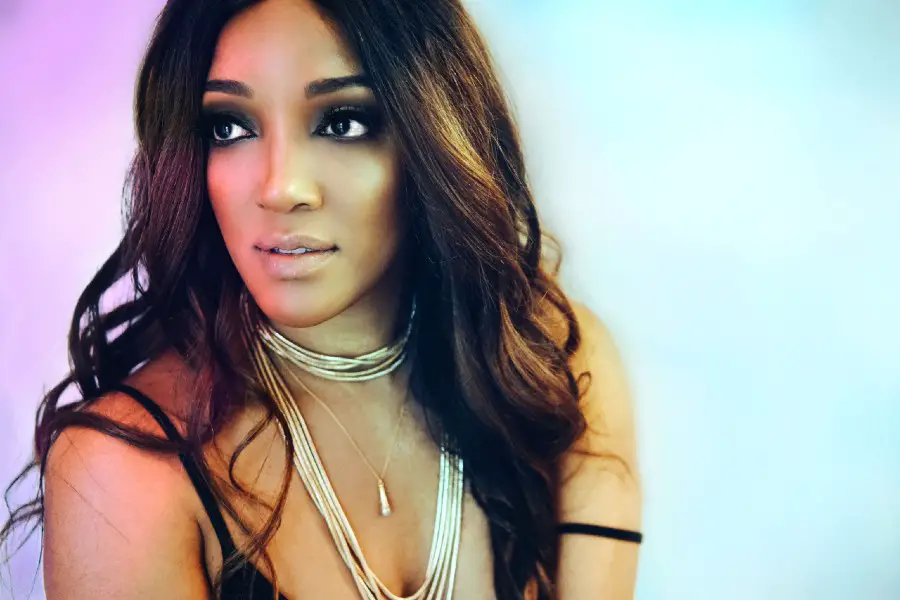
Mickey Guyton has never been afraid to touch deep subjects in her music, whether it be with her debut single, “Better Than You Left Me,” or her recent “What Are You Gonna Tell Her?” about equality among genders. But it’s her latest, “Black Like Me,” that is by far the most poignant. Mickey felt compelled to release the song, without fanfare or promotion, in light of all the racial injustices that have been happening in the country, including the tragic death of George Floyd.
“We had this song done and mastered about eight months ago,” Mickey told NPR. “Our plan, before COVID, was to release my song ‘What Are You Gonna Tell Her?’ and ‘Black Like Me’ as a bundle. We were getting ready to shoot a music video. All of that was being prepared. Then everything just stopped. … I didn’t feel right trying to promote anything while people are suffering and not able to buy food.”
Mickey cites other black people who have been senselessly killed, including Ahmaud Arbery and Breonna Taylor, but said that after watching what happened to George, she decided it was time to share the song with the world.
“I just put ‘Black Like Me’ on my Instagram,” Mickey recalled. “No permission, no nothing. I just put it out there because people need to hear that. And then Spotify called and asked for it. I was like, ‘Here. Take it. There doesn’t need to be promotion, because that’s tacky. This is not about me. This is about the bigger spectrum of things and about humanity. And that’s why we did it. It was purely to try to at least get people to hear different perspectives.”
Mickey co-wrote “Black Like Me” with Nathan Chapman, Emma Davidson-Dillon and Fraser Churchill, never imagining the reaction the song would instantly receive when she shared it with her fans.
“I had had this title, ‘Black Like Me,’ in my notes forever and ever and ever,” Mickey said. “When I got in the writing session, I just blurted it out. I was like, ‘Y’all. I’ve been wanting to write a song about being a black woman, about being black.’ These other writers jumped on it. And when we finished it, Nathan Chapman said, ‘This could either be the biggest song of your career, or it’s gonna make a lot of people angry. But I think we just wrote one of the most important songs of your career.’ People aren’t used to hearing that much honesty in a song, because we don’t write honesty anymore.”
The 36-year-old is, in many ways, starting a new chapter with “Black Like Me” –– one that focuses more on who she is and less who, or what, people want her to be.
“A lot of hurt had to happen to get me to that point,” Mickey acknowledged. “I did Nashville the Nashville way for so long, and I had seen so many women do Nashville the Nashville way, with very little results, and that’s kind of how I felt within my own life as being a black woman. I was having to face that and feel that, and go through studio sessions or makeup sessions having all these people around me that don’t look like me telling me how to do my hair and my makeup. And me a lot of times having to do my own hair, because people don’t know how to do my kind of hair. Me turning in a song and it automatically being [declared] too pop. It had to be all of those moments for me to get to a breaking point where I needed a song about it.
“That was part of working on myself: I had to step outside of myself and realize I’m getting older,” she continued. “I can’t sing about liking boys, because I have a man. And having to find a different perspective for a grown woman. And that perspective was seeing people being marginalized and wanting to protect [them] so they don’t ever have to go through what I went through.”
Now that Mickey has shared “Black Like Me” with the world, she knows there is no more being quiet, and definitely no more being silenced about something that is so important.
“I have stepped in it,” Mickey conceded. “Yesterday I was talking to my husband and I said, ‘I can’t go back.’ I realize the responsibility in that, and it’s a lot of pressure. However, it is much easier for me to fight for other people than it is to fight for myself. Yes, I have music out there. Yes, I need to make a living. But the music is not self-centered. It’s not self-serving. This music is about everyone coming together. And that does take some of the weight off of me.
“But I have been nervous, I’m not going to lie,” she acknowledged. “I’m nervous. I don’t know what this new chapter looks like. I asked for this, you know? And now I’ve got it. I’m starting to get the respect. And it’s like, ‘How do I keep that up?'”
